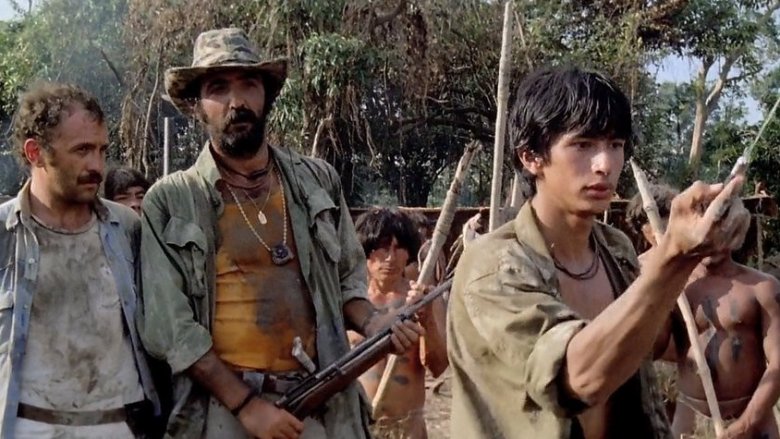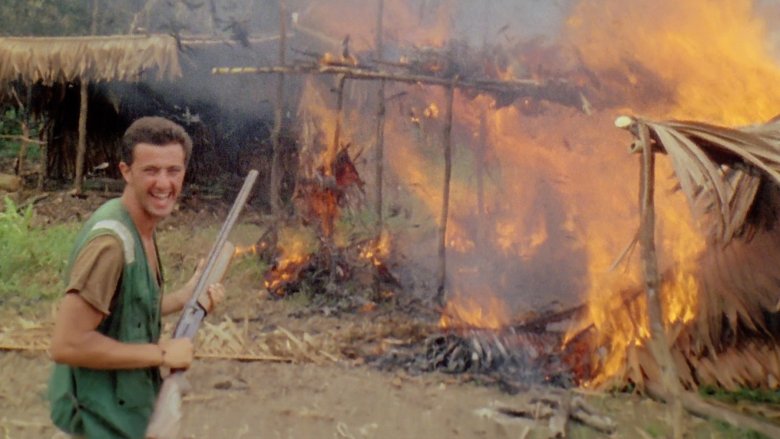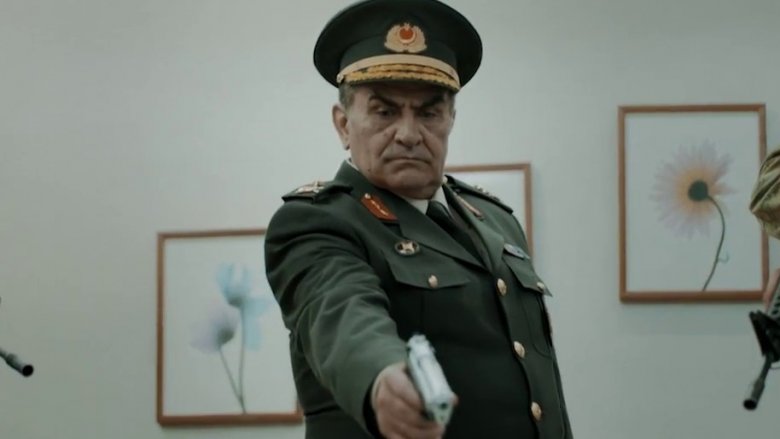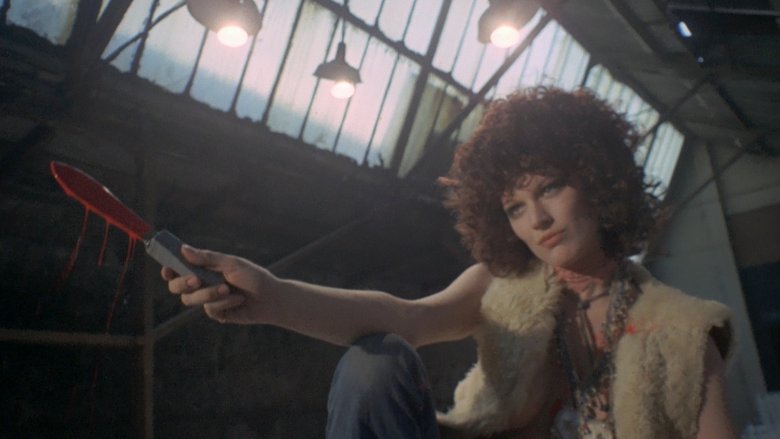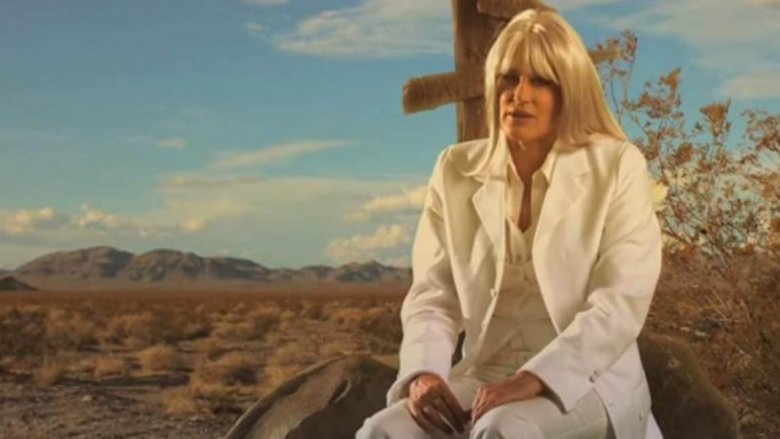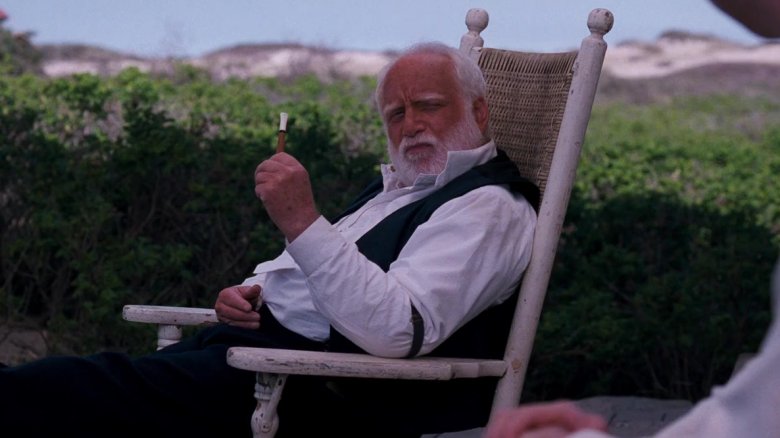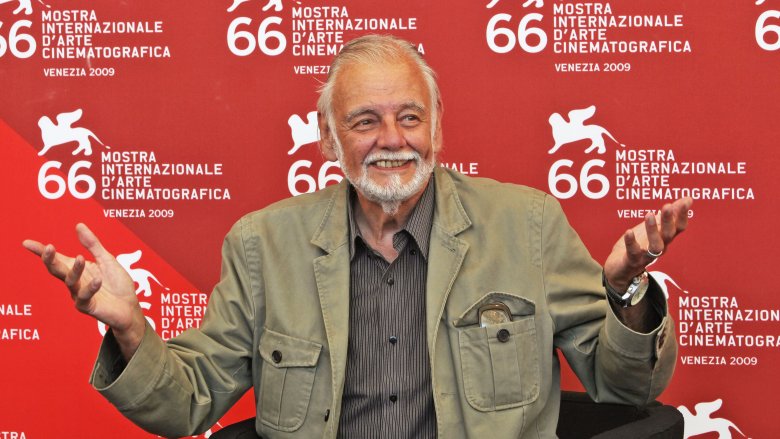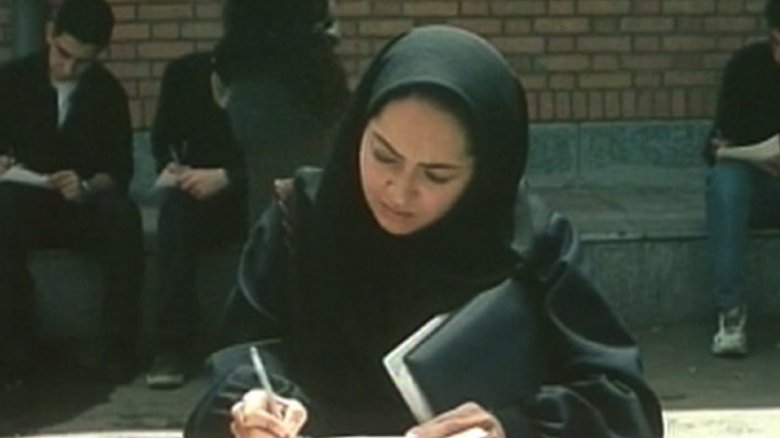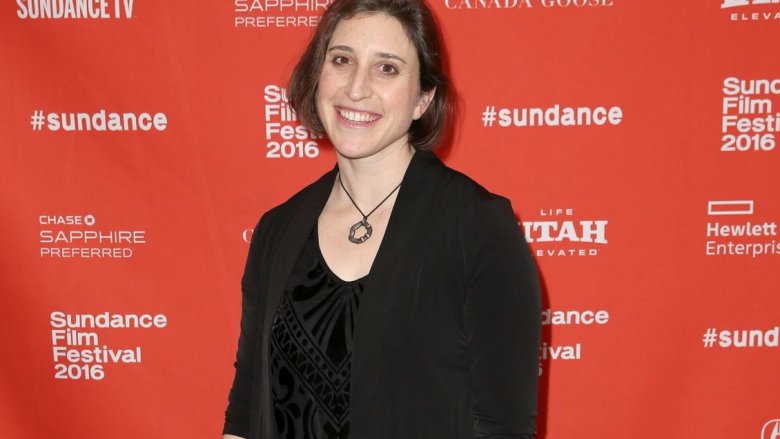Movies That Got Filmmakers Arrested
It's a well-known cliche that artists often suffer for their art, and it's tough to deny how compelling tales of artistic sacrifice can be. For every great film, tales abound of the toll stressful shoots can take on casts, and how actors have physically and emotionally pushed themselves to the limit in pursuit of a good performance. What's less frequently discussed is how some filmmakers also put their own well-being on the line to secure their artistic vision.
Directors and producers are known to clock long hours and endure strenuous situations in the making of their films, but sometimes getting the movie finished can lead to problems that can't be fixed with a well-earned vacation—problems like being arrested and charged with criminal offenses. In some cases, making a movie even meant jail time for those involved. Here are some times when the big-screen ambitions of filmmakers had them facing the big house.
You are what you eat
Perhaps the most infamous example of a film leading to the arrest of its director is the 1980 Italian exploitation classic Cannibal Holocaust. Using found footage techniques long before The Blair Witch Project, the story follows an anthropologist and rescue team who travel to the Amazon in search of a lost film crew who disappeared there. The rescue team discovers a group of skeletons surrounded by camera equipment and film cans. When the footage is processed, it reveals the filmmakers terrorized the local people to spice up their documentary and ended up murdered by a tribe in retribution.
The film was a staggering success, reportedly earning $200 million dollars in the ten days it was released before being confiscated by authorities. Director Ruggero Deodato was charged with obscenity in the Italian courts, which was later upgraded to murder. According to Deodato, he had his actors "sign a contract that said they must disappear for a year after the film was finished" to encourage audiences to believe they were actually murdered. Francesa Ciardi, who played one of the missing filmmakers, recalled that it worked too well, leading to reports that multiple actors died in the making of Cannibal Holocaust. Ciardi and one of her castmates had to prove in court that they were not, in fact, dead. Deodato revealed in a 2011 interview that he was still "fined millions of lira and given a four months suspended sentence."
Defining propaganda
A director who wasn't lucky enough to escape jail time is Ali Avci, a Turkish filmmaker who was arrested due to the content of his 2016 film Uyanis ("Awakening"). Though efforts are being made to campaign for his release, Avci was sentenced to six years and three months in prison in September 2018. A court in Istanbul contends that the film, which depicts a failed military coup in 2016 during which over 250 were killed, proves that Avci was a part of cleric Fethullah Gulen's network. Turkey declared Gulen was the head of a terrorist organization that masterminded the actual attack.
One of the film's scenes "caused public uproar" according to Reuters in showing Turkish President Tayyip Erdogan's family "shot dead, and an army officer pointing a gun at the back of the president's head as he prayed." The court claimed Avci was carrying out "public perception management in line with the core goals of the terrorist organization" by attempting to release his film. Avci denies the charges, saying, "If I was trying to make terrorist propaganda, I would have shown Erdogan making plans to flee, instead of the praying scene."
The Turkish film industry has seen a rise in government interference in recent years, going so far as to censor entire scenes from Karim Oz's Zer, which premiered at the Istanbul Film Fesitval in 2017. In place of scenes that depicted a Kurdish uprising, a black title card appeared which explained that the "governing board of the Turkish Ministry for Culture and Tourism considers it inappropriate."
When special effects are too effective
You might not recognize the name Carlo Rambaldi, but you definitely know his work. He's the special effects wizard and three-time Academy Award winner who brought life to the titular creatures in 1976's King Kong, 1979's Alien, and 1982's E.T. the Extra Terrestrial. But a darker chapter lurks in Rambaldi's career before he set his hand to those masterpieces of modern special effects. In 1971, Rambaldi teamed with director Lucio Fulci on A Lizard in a Woman's Skin, a low-budget horror film that featured, among other odd scenes, a moment in which a woman discovers a room of vivisected dogs, their beating hearts exposed and heads still twitching.
Described as "a queasy, distinctly un-PC mix of bloodshed and sex," the film boasted "outrageous early 1970s Italian fashions and a groovy Ennio Morricone soundtrack." That wasn't enough to save Fulci from being charged with animal cruelty. So real did Rambaldi's effects seem that he was suspected of the torture and killing of the six dogs who appear on-screen. To defend against the charges, Rambaldi and the film's producer had to wheel his mechanical dogs into court to show they were, in fact, animatronic armatures composed of rubber and covered in coyote skin. This helped Fulci avoid a two-year prison sentence, and led Rambaldi to destroy the creatures due to his negative associations with them. It just might have been the first case in which a special effects artist had to prove that his work wasn't real.
Death and taxes
What do you get when you mix Doctor Who, a mermaid, and Magnum P.I.? Tax fraud, apparently, with a side of straight-to-DVD shame. So goes the strange tale of the ill-fated film Eldorado (the title is drawn from an Edgar Allan Poe poem, though the movie was later released as Highway to Hell). This 2011 horror/comedy/musical directed by Richard Driscoll starred Sylvester McCoy, Daryl Hannah, and Steve Guttenberg. It was also the final performance of David Carradine prior to his untimely death, which is unfortunate, considering it didn't even make it to theaters.
The studio that owned the distribution rights was shocked to discover the film had been released straight to DVD without their knowledge. When they attempted to contact Driscoll, they found he'd sold the property on which he filmed the movie and disappeared. Some months later, Driscoll was found and arrested on charges of tax fraud. HM Revenue & Customs (the United Kingdom's equivalent to the IRS) claimed Driscoll "falsified invoices for the costs of making films in order to reclaim VAT [Value Added Tax] back that he was not entitled to and set up a number of associated companies that were used purely to commit the crime."
Driscoll might have gotten away with it, too, to the tune of 2.3 million dollars, were it not for the date on one of his invoices claiming that some of Carradine's scenes had been shot after the Kung-Fu star was already dead. Driscoll was sentenced to three years in prison.
In the can
"You know the old saying among filmmakers: 'Do whatever you can to get it in the can,' " said director Daniel Adams on his release from prison after serving 21 months for tax fraud in relation to his 2009 film The Lightkeepers, starring Richard Dreyfuss and Blythe Danner. Adams, who has made several films set in Massachusetts, claims he wasn't intending to scam the state, but was simply out of money and desperate to finish his movie. "I broke the law," said the director, "but my only goal was to get the movie in the can."
The full story is a little more complicated than Adams' remarks would suggest. He filed for bankruptcy in 2000, going broke after attempting to build a yacht. The bankruptcy filing made it difficult for the filmmaker to finance his movies, and to solve this problem, Adams submitted fraudulent tax claims. He was ordered to pay more than $4 million to the state of Massachusetts, and served his sentence at a minimum-security prison from 2012 to 2014.
Since his release, he's only paid back about $5,000 to the state, and was hauled back to court in Cape Cod to work out a payment plan. He'll make regular payments of $500 to the state until his films begin to turn a real profit. Based on the $5,004 gross of his recent film An L.A. Minute, which only played in three theaters, that's probably going to take him a while.
This film shoot was not approved by the NYPD
George Romero is the father of modern movie zombies, and he scarred a generation of young moviegoers with Night of the Living Dead. The movie pre-dates the Motion Picture Association of America's rating system, which meant that children could purchase their own tickets and be front-and-center for the flesh-eating frenzy. It was even shown as a matinee. Roger Ebert reported from one of those matinees: "The kids in the audience were stunned. There was almost complete silence. The movie had stopped being delightfully scary about halfway through, and had become unexpectedly terrifying. There was a little girl across the aisle from me, maybe nine years old, who was sitting very still in her seat and crying."
Romero had been courting controversy with his filmmaking ever since he himself was a child. At the tender age of 14, he was already making movies with an 8mm camera borrowed from his uncle. During a shoot for a science-fiction thriller he titled The Man From the Meteor, he set a dummy on fire to depict an alien's death at the hands of his own ray gun. For dramatic effect, Romero threw the dummy from the roof of his childhood home in Parkchester, which somewhat startled his neighbors. "Having failed to contact the police and let them know I was going to do this," Romero told NPR, "I was hauled away by the police and my parents were called." He was released later that day.
An Iranian activist gets Hollywood support
Popularity is no guarantee of freedom when a director speaks out against the injustices of a powerful regime. Director Tahmineh Milani helped to establish Iran's "cinematic reputation" with films such as the 1991's The Legend of a Sigh, which pairs fairy tales with the Iranian feminist struggle, and 1999's Two Women, which dramatizes the early days of the Islamic Republic in the 1980s. Milani's 2001 film, The Hidden Half, follows the story of a woman who reveals her somewhat revolutionary past to her husband, a high court judge who must decide the fate of a woman facing execution for similar political activism.
The Hidden Half managed to avoid being censored by Iranian Ministry of Culture and Islamic Guidance. After giving speaking up to an Iranian newspaper about "acquaintances who had been executed, imprisoned or expelled from universities after the revolution," Milani's office and home were raided and she was imprisoned on the charge of "'supporting factions waging war against God,' misusing the arts in support of counterrevolutionary and armed opposition groups," which carries the death penalty.
A petition was organized in support of her release, signed by film luminaries such as Francis Ford Coppola, Spike Lee, Martin Scorsese, Steven Soderbergh, and Ang Lee, among others. Milani's arrest was criticized by Iran's President Mohammad Khatami, who stated "skilled Iranians are emigrating because they believe they are subject to injustice." MIlani was released on bail a week later, and the charges were later dropped.
Her film was more than a pipe dream
Lest you think imprisonment of female filmmakers isn't something that happens closer to Hollywood, consider the case of documentarian Deia Schlosberg. Schlosberg produced the 2016 global-warming documentary How to Let Go of the World and Love All the Things Climate Can't Change. "Tough. As in, tough to watch. Tough to consider. Tough to ignore," the New York Times called it. Schlosberg was arrested later that same year while filming activists who shut down a TransCanada's Keystone oil pipeline in North Dakota. Authorities there charged the filmmaker with three counts of conspiracy, charges which could carry a maximum penalty of 45 years in prison, as well as trespassing and criminal mischief.
"From the beginning, I was just dumbfounded by the charges," Schlosberg said, "they seem to come from out of nowhere...I was doing my job. I was documenting a climate action." Josh Fox, the Oscar-nominated director of How to Let Go of the World..., wrote a petition to President Obama and North Dakota Governor Jack Dalrymple claiming the charges against Schlosberg were "unfair, unjust and illegal." It was signed by over 30 artists, filmmakers, writers and journalists, including Neil Young, Mark Ruffalo, and Daryl Hannah. Her prosecution was suspended a month later.
